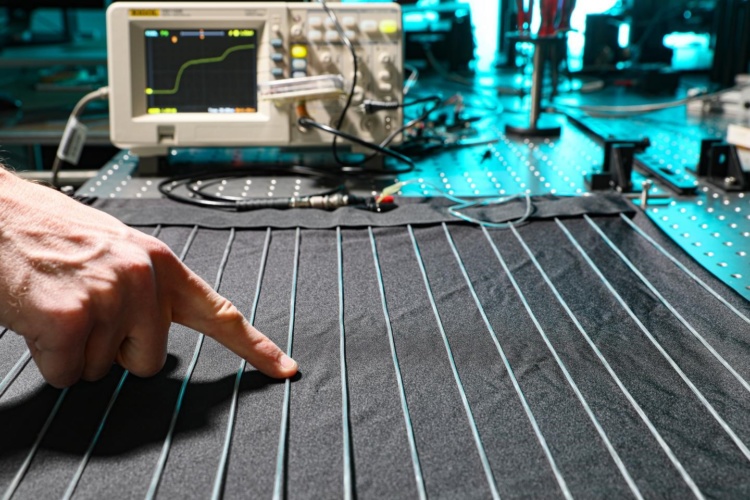
Developed by a team at EPFL in Lausanne, the innovation is based on a specially developed sensor that can simultaneously detect different kinds of fabric deformation like stretching, pressure and torque.
The flexible fibre-shaped sensors developed by the group work in a very different way from conventional sensors. "Our technology works similar to a radar, but it sends out electrical impulses instead of electromagnetic waves," explained doctoral assistant Andreas Leber. "The system measures the time between when a signal is sent out and when it's received, and uses that to determine the exact location, type and intensity of deformation."
MORE ON SMART TEXTILES FROM THE ENGINEER
Southampton team develop smart fabrics
The new fibre sensor has a number of advantages over conventional sensors which are fragile and break easily, which would be required in high numbers to cover a large area of fabric, and which are typically only able to detect one kind of deformation.
Creating the fibres used in the sensors was a complex task involving liquid metal, which serves as the conductor, and an optical fibre fabrication process. "The structure is just a few micrometres thick and has to be perfect, otherwise it won't work," said Leber. With these fibres, the entire surface of a fabric becomes one large sensor.
"The trick was to create transmission lines made entirely of flexible materials, using a simple method that can be scaled up easily," added the project’s leader Professor Fabien Sorin.




Poll: Should the UK’s railways be renationalised?
I think that a network inclusive of the vehicles on it would make sense. However it remains to be seen if there is any plan for it to be for the...